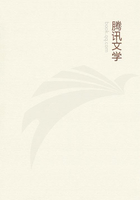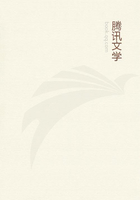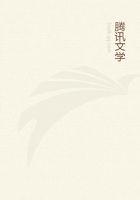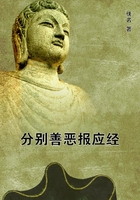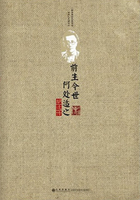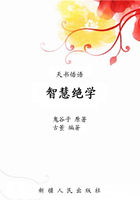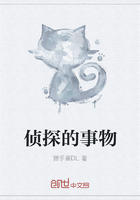It takes but a small exertion of introspection to show that the latter alternative is the true one, and that we can no more intuit a duration than we can intuit an extension , devoid of all sensible content.Just as with closed eyes we perceive a dark visual field in which a curdling play of obscurest luminosity is always going on; so, be we never so abstracted from distinct outward impressions, we are always inwardly immersed in what Wundt has somewhere called the twilight of our general consciousness.Our heart-beats, our breathing, the pulses of our attention, fragments of words or sentences that pass through our imagination, are what people this dim habitat.Now, all these processes are rhythmical, and are apprehended by us, as they occur, in their totality; the breathing and pulses of attention, as coherent successions, each with its rise and fall; the heart-beats similarly, only relatively far more brief; the words not separately, but in connected groups.In short, empty our minds as we may, some form of changing process remains for us to feel, and cannot be expelled.And along with the sense of the process and its rhythm goes the sense of the length of time it lasts.Awareness of change is thus the condition on which our perception of time's flow depends; but there exists no reason to suppose that empty time's own changes are sufficient for the awareness of change to be aroused.The change must be of some concrete sort -- an outward or inward sensible series, or a process of attention or volition.
And here again we have an analogy with space.The earliest form of distinct space-perception is undoubtedly that of a movement over some one of our sensitive surfaces, and this movement is originally given as a simple whole of feeling, and is only decomposed into its elements -- successive positions successively occupied by the moving body -- when our education in discrimination is much advanced. But a movement is a change, a process; so we see that in the time-world and the space-world alike the first known things are not elements, but combinations, not separate units, but wholes already formed.The condition of being of the wholes may be the elements; but the condition of our knowing the elements is our having already felt the wholes as wholes.
In the experience of watching empty time flow -- 'empty' to be taken hereafter in the relative sense just set forth -- we tell it off in pulses.
We say 'now! now! now!' or we count 'more! more! more!' as we feel it bud.
This composition out of units of duration is called the law of time's discrete flow.The discreteness is, however, merely due to the fact that our successive acts of recognition or apperception of what it is are discrete.The sensation is as continuous as any sensation can be.All continuous sensations are named in beats.We notice that a certain finite 'more' of them is passing or already past.To adopt Hodgson's image, the sensation is the measuring-tape, the perception the dividing-engine which stamps its length.As we listen to a steady sound, we take it in in discrete pulses of recognition, calling it successively 'the same! the same! the same!' The case stands no otherwise with time.
After a small number of beats our impression of the amount we have told off becomes quite vague.Our only way of knowing it accurately is by counting, or noticing the clock, or through some other symbolic conception. When the times exceed hours or days, the conception is absolutely symbolic.
We think of the amount we mean either solely as a name , or by running over a few salient dates therein, with no pretence of imagining the full durations that lie between them.No one has anything like a perception of the greater length of the time between now and the first century than of that between now and the tenth.To an historian, it is true, the longer interval will suggest a host of additional dates and events, and so appear a more multitudinous thing.And for the same reason most people will think they directly perceive the length of the past fortnight to exceed that of the past week.But there is properly no comparative time intuition in these cases at all.It is but dates and events, representing time; their abundance symbolizing its length.I am sure that this is so, even where the times compared are no more than an hour or so in length.It is the same with Spaces of many miles, which we always compare with each other by the numbers which measure them.
From this we pass naturally to speak of certain familiar variations in our estimation of lengths of time.In general, a time filled with varied and interesting experiences seems short in passing, but long as we look back.On the other hand, a tract of time empty of experiences seems long in passing, but in retrospect short.A week of travel and sight-seeing may subtend an angle more like three weeks in the memory;
and a month of sickness hardly yields more memories than a day.The length in retrospect depends obviously on the multitudinousness of the memories which the time affords.Many objects, events, changes, many subdivisions, immediately widen the view as we look back.Emptiness, monotony, familiarity, make it shrivel up.In Von Holtei's 'Vagabonds' one Anton is described as revisiting his native village.
"Seven years," he exclaims, "seven years since I ran away! More like seventy it seems, so much has happened.I cannot think of it all without becoming dizzy -- at any rate not now.And yet again, when I look at the village, at the church-tower, it seems as if I could hardly have been seven days away."
Prof.Lazarus (from whom I borrow this quotation), thus explains both of these contrasted illusions by our principle of the awakened memories being multitudinous or few:

